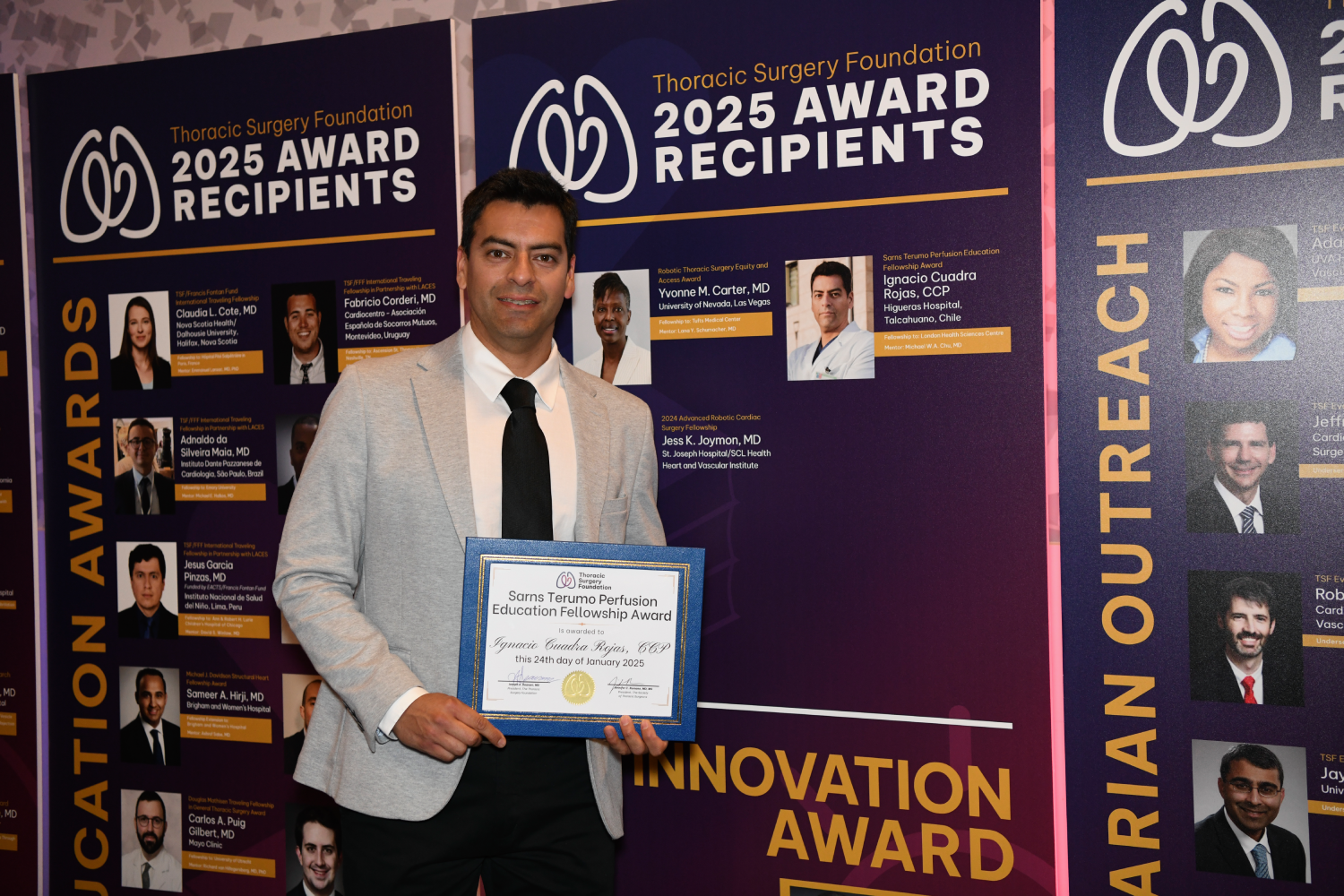Nanoparticle Therapy Can Target and Repair Injured Myocardial Tissue
.jpg)
Nanoparticle Therapy Can Target and Repair Injured Myocardial Tissue
With the 2023 STS Research Award, Shin Yajima ,MD, PhD, developed a minimally invasive approach to maximize the uptake of stromal cell-derived factor (SDF), which can help to preserve and regenerate vascular tissues after myocardial ischemia/reperfusion injury. It’s a milestone in his career as a surgeon scientist—which he has dedicated to developing new therapies for ischemic heart disease.
“Throughout my clinical experience and research, I realized that insufficient myocardial blood flow had little impact on myocardial functional recovery because percutaneous coronary intervention or coronary artery bypass grafting (CABG) could approach and supply blood flow to the superficial large coronary arteries, but not to intramyocardial microvascular arteries, especially where microvasculature was scarce or absent,” Dr. Yajima recalled. “Moreover, myocardial ischemia-reperfusion (I/R) impaired cardiac functional recovery in ischemic hearts, including transplanted hearts.”
Dr. Yajima and other investigators had previously demonstrated the functional and regenerative benefits of SDF treatment—increasing vasculogenesis, decreasing cardiomyocyte apoptosis, and preserving ventricular geometry.
There is, however, a mismatch between the timing of SDF’s peak expression and that of its chemokine receptor. To offset this mismatch, Dr. Yajima’s team developed a bioengineered SDF analog that enhances stem cell delivery and controlled cytokine release.
“In these studies, we observed robust angiogenesis, preserved myocardial tissue biomechanics, reduced adverse postinjury remodeling, and pronounced left ventricular function recovery in response to therapy,” Dr. Yajima explained. “However, this engineered SDF analog was delivered via direct intramyocardial injection into an open chest.”
Maximally Effective, Minimally Invasive
The next step, naturally, was to develop a means of delivering SDF therapy in a less invasive way. To accomplish this, Dr. Yajima’s team created a sustained-release compound of encapsulated SDF in liposomal nanoparticles.
“These NPs suppress recognition by the mononuclear phagocyte system, resulting in improved stability and prolonged circulation time, thus increasing its pharmacological effect while reducing side effects,” Dr. Yajima explained.
Nanoparticle-encapsulated drugs can be used to selectively target ischemic myocardial tissue. Dr. Yajima’s team hypothesized that nanoparticles containing SDF could do the same in I/R-injured myocardial tissue, increasing the number of endothelial progenitor cells in the systemic circulation to induce robust angiogenesis and help to attenuate injury.
They tested this hypothesis in rats ,subjecting them to I/R injury and then treating a selection of the animals with intravenous injection of the SDF compound into a tail vein.
Injured tissues in the treated rats demonstrated diminished damage, with better-preserved capillary networks, better-preserved myocardial blood flow, and smaller infarct size.

Sights on Targeted Therapies
At Stanford Medicine, Dr. Yajima has continued to work on techniques for myocardial regeneration—engineering tissues from induced pluripotent stem cells and adipose-derived mesenchymal stem cells. By directly implanting these human-derived cells onto ischemic myocardial tissue, his team was able to reduce left ventricular remodeling and improve cardiac performance in both small and large animals.
“The STS Research Award has provided me with a unique opportunity to assemble a team of visionary scientists with complementary expertise to advise me as I carry out my proposed research and prepare for an independent research career,” Dr. Yajima said.
With ongoing research support from the Japan Heart Foundation and a Bayer Research Grant Abroad, Dr. Yajima intends to spend his postdoctoral fellowship at Stanford developing novel therapies to improve outcomes in patients with ischemic heart disease.
“My career goal is to attain leadership in academic cardiovascular surgery,” he said. “My mentor, Dr. Woo, is a distinguished mentor with a stellar reputation for training academic surgeons, and Stanford University provides extraordinary research resources. I feel extremely fortunate to have such an ideal environment in which to carry out this project and continue bioengineering's advancement of cardiothoracic surgery.”
Make More Stories Like This Possible
Your gift to TSF supports cardiothoracic surgery professionals in their drive to advance heart and lung health for all. Please consider a gift today!

Make More Stories Like This Possible
Your gift to TSF supports cardiothoracic surgery professionals in their drive to advance heart and lung health for all. Please consider a gift today!

Make More Stories Like This Possible
Your gift to TSF supports cardiothoracic surgery professionals in their drive to advance heart and lung health for all. Please consider a gift today!

Make More Stories Like This Possible
Your gift to TSF supports cardiothoracic surgery professionals in their drive to advance heart and lung health for all. Please consider a gift today!


.webp)

.webp)